
Shop T-shirts, work pants, flannel shirts, hoodies, and more. We've pictured the Carhartt Men's Rain Defender Loose Fit Heavyweight Sweatshirt for $48.74 ($21 off). Buy Now at Amazon

It's $3 under its typical price. Buy Now at Amazon

On January 2, you could be in with a chance to get a free Dunkin' Donuts Doughnut and tote bag for free with a drink purchase, but only if you are among the first 200 customers at select locations. Shop Now at Dunkin Donuts Shop

Shop deals on Bosch's well-reviewed wiper blades, oil filters, spark plugs, and more. With savings of as much as 52% off available. Buy Now at Amazon

It's available in Green or Pink at half of its usual price. Buy Now at Amazon

Today at Under Armour, you can use two stacking promo codes to cut the price of men's shoes down to best-ever prices. The coupon "CHEATCODE" takes an extra 50% off and the code "EXTRA20" takes another $20, which puts slides as low as $8 and running shoes down to just $24. They'll all ship for free at the moment, too. Buy Now at Under Armour

A new Amazon Haul Flash Sale has gone live in which everything costs just a buck or less. Each customer is limited to three items each. Add over $25 to your cart from anywhere in the Amazon Haul section to get free shipping. Buy Now at Amazon

Save on discounted candy, chips, nuts, spices, and more. Checkout via Subscribe & Save and you'll get an extra 5% to 15% off lots of items. Buy Now at Amazon
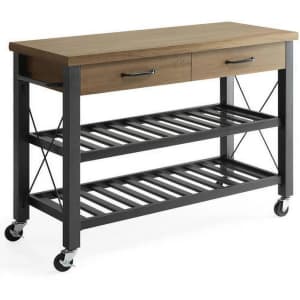
That's $70 off and the lowest price we could find. It's also $68 under our July mention and the lowest price we've ever seen. Buy Now at Walmart
- Multi-functional cart
- Metal lower shelves
- Concealed drawer storage
- Casters
- Model: SFKCWMS-T

It's $7 under its typical price. Buy Now at Amazon
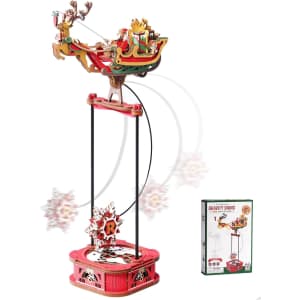
That's a $2 low and its best-ever price. Buy Now at Amazon
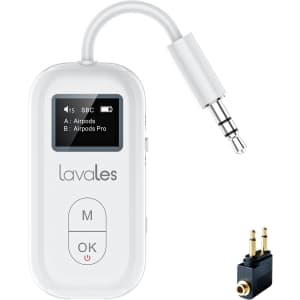
That's a savings of $15 and the lowest price it's been. Buy Now at Amazon

Bank of America, Merrill, or Bank of America Private Bank (U.S. Trust) credit or debit cardholders get free admission to over 225 museums on the first full weekend of every month. (The next eligible weekend is January 3 and 4.) Shop Now at Bank of America®
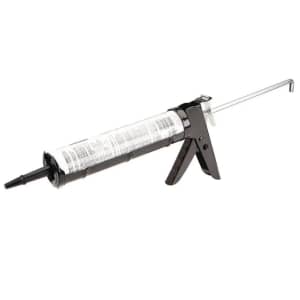
Harbor Freight Tools has kicked off their Dollar Days deals with savings of up to 49% off. You will save on cutters, mini flashlights, bit sets, hammers, and more. All these coupons work online or in-store at Harbor Freight. Shipping starts at $6.99. Buy Now at Harbor Freight Tools

Apply coupon code "KBWN9" for a savings of $115. Buy Now at Koulb
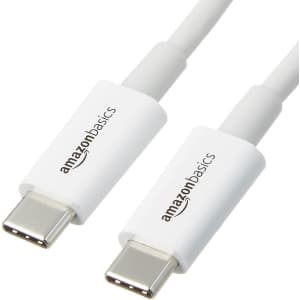
Shop cables from around $4, plus memory cards, docking stations, mice, surge protectors, and more. We've pictured the Amazon Basics USB-C to USB-C Fast Charger Cable for $6.50 ($1 off). Buy Now at Amazon

Change your delivery fee - not your ordering habits. Get $0 delivery fees on eligible orders with DashPass. Shop Now at DoorDash
- $0 delivery fees plus lower service fees on eligible orders.
- Member-exclusive deals. Save on restaurants, groceries, and more.
- 5-10% off Lyft rides for up to 4 discounted rides per month.
- Earn 5% DoorDash credits back on eligible orders.

You'd pay $9 more elsewhere. Buy Now at Woot! An Amazon Company
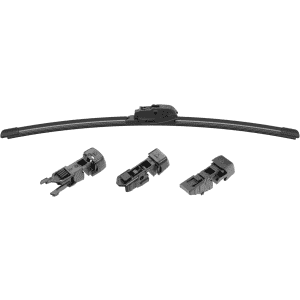
Take $11 off the pictured 22" model, and find savings on a wide range of sizes, from 15" to 28". Buy Now at Amazon
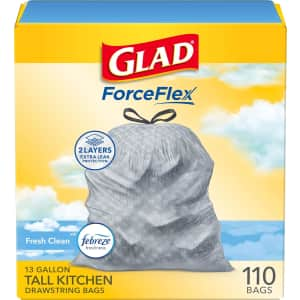
Spend $50 on these household essentials and apply coupon code "STOCKUPSAVE" for a $15 Amazon credit. Shop Now at Amazon

Save $24 compared to the list price with this tax software solution, which assists homeowners and those with complex tax situations with both federal and state returns. Buy Now at Amazon
- For home and donation-related returns
- Includes 5 Federal e-files, 1 State download
- Live tax advice available
- Maximizes 375+ deductions and credits

Save on coffee, protein bars, granola, syrup, and more - with discounts of as much as 50% off available. Buy Now at Woot! An Amazon Company

That's 75% off select styles, and the lowest price we've seen on this one in months. Buy Now at eBay

Shop the clearance section at Old Navy to get up to 85% off over 3,000 styles. Prices are as marked. Baby styles start at $1, women's tops from $2, men's shorts from $4, and much more. Rewards members get free shipping on orders of $50 or more, and it's free to sign up. Buy Now at Old Navy

You'd have to pay at least $7 to snag this base game anywhere else today. Of note, this game is rated M for Mature and recommended for ages 17 and up. Shop Now at Epic Games Store

Shop tire foam, car wash, bug remover, leather cleaner, and more. We've pictured the Meguiar's Quik Interior Detailer Wipes for $5.99 ($2 off). Buy Now at Amazon

Make the new year delicious with 15 budget-friendly bottles of red wine for $88 ($187 off). You must be at least 21 years old to order. Plus, shipping is free. This offer ends January 5, 2026. Buy Now at Splash Wines

That's $3 under Amazon's best-ever price. Buy Now at Walmart
- 1:420 scale
- LED flames & flashing tower lights


It's a savings of $40. In several colors (Gray pictured). Buy Now at Amazon

Save $34 over list price on these Bosch QuietCast brake pads for select Hyundai and Kia models, known for quiet operation and long-lasting durability. Buy Now at Amazon
- Compatible with select Hyundai, Kia
- Quiet operation with specialized shims
- Ceramic material for low dust
- Includes hardware kit and lubricant
- Prevents rust with powder-coated backing
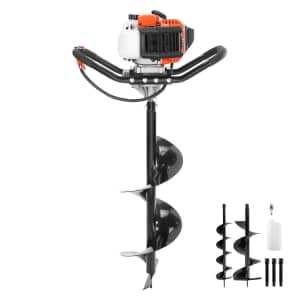
Shop a selection of best sellers from Vevor including chainsaws, floor sweepers, battery chargers, hand tools, and much more. For most items, you will have to create a free account to get the best price and to get free shipping, although if you live in a particular rural area, you may have to pay for shipping. Buy Now at VEVOR

That beats our previous mention and is now the best price we've ever seen on this set. Opt for pickup to avoid the $6.99 shipping charge (or get free shipping with orders of $35 or more). Buy Now at Walmart

That's a 42% discount, the best price we've ever seen, and the best price they've ever been period on Amazon. Buy Now at Amazon
- install in under 5 minutes
- SAE Class S traction
- washable and reusable
- includes gloves, bag, and instructions

That's a savings of $113. In several colors (Black pictured). Buy Now at eBay

Thru January 1, get two dozens for $20.26. Plus, Krispy Kreme offers free delivery when you spend at least $5.
If you're in the mood for fast food, you can save even more with these Uber Eats promo codes. Buy Now at Krispy Kreme

FitVille offers the FitVille Men's Rebound Core V1 Shoes for $35 (reduced from $79) via coupon code "RC55" with free shipping. Buy Now at FitVille

Clip the coupon on the product page to get this deal. It's $300 off list and the best price ever for it on Amazon. Buy Now at Amazon
- Offers 1720 cu.ft storage
- Dual hinged doors for easy entry
- Supports cars, boats, and more
- Four windows and gable vents
- Made from anti-rust galvanized steel

It's $84 off and the lowest price we've seen for this model. Buy Now at Amazon
- Qualcomm Snapdragon 695 processor
- 11” 1920x1200 LCD
- 4GB RAM & 64GB storage
- Android 13
- Model: SM-X210NZAAXAR

Clip the coupon and subscribe for its best price in several flavors. Buy Now at Amazon
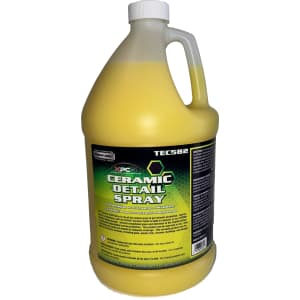
That's a 35% discount and within a few bucks of its best ever price on Amazon. Buy Now at Amazon
- for use on any exterior vehicle surface, including glass, plastic trim, chrome, and wheels

That's a savings of around $5. Shipping is free from a U.S. warehouse. Buy Now at AliExpress

That ties the lowest price we've seen at $12 off. Buy Now at Amazon
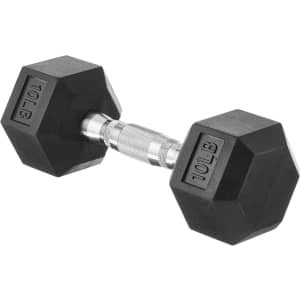
That's the lowest starting price we've seen for these dumbells. Plus, order 4 or more to stack an extra 10% off. Buy Now at Amazon
- Single 10-pound dumbbell
- Iron with rubber encased heads
- Hexagon shape prevents rolling
- Non-slip textured grip
- Contoured handle for comfort

Today's the last day to be in with a chance. Buy three select cereal products (between 8/11 and 12/31) in one transaction and upload your receipt(s) within 30 days of purchase to get a pair of Kellogg's headphones with your cereal character of choice. There are a limit of two headphones per person. Shop Now at Kellog's
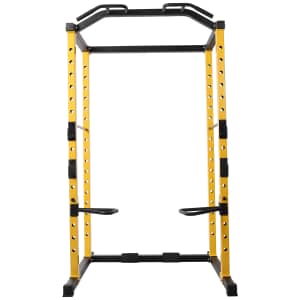
You'd pay over $200 elsewhere. Buy Now at Walmart

Indulge in the ultimate premium cigar experience with Cigar Page's Prime 10-Cigar All-Stars #6 Sampler. This unbeatable combo includes 10 exquisite cigars. Elevate your smoking game with this extraordinary deal! This collection is yours for ONLY $19.99 + FREE SHIPPING to your door. That's just $2 a cigar! Due to limited inventory only one per customer is available. While supplies last. Buy Now at Cigar Page
- Rocky Patel Decade Robusto (5"x50) 95-rated
- Oliva Serie V Perfecto (5"x55) 95-rated
- Rocky Patel Number 6 Robusto Grande (5.5"x50) 95-rated
- Oliva Serie V Melanio Maduro Toro (6"x52) 96-rated
- Rocky Patel Royale Toro (6.5"x54) 94-rated
- Oliva Serie O Maduro Torpedo (6.5"x52) 90-rated
- Rocky Patel Vintage 2003 Cameroon Toro (6.5"x52) 93-rated
- Oliva Serie G Maduro Torpedo (6.5"x52) 93-rated
- Rocky Patel Sun Grown Maduro Toro (6.5"x52) 95-rated
- Oliva Black Swan Toro (6.5"x52)
How Much Can I Save on the Hottest Deals?
The average savings can vary wildly day by day, but we regularly see discounts of anywhere from 15% to 96% off. The biggest discounts usually pop up for holidays, such as these Early Prime Day Deals. Thanks to coupon codes giving extra discounts, we'll regularly see shoes and apparel from the biggest brands like Nike, adidas, and New Balance at over 50% off. If you're looking for tools or home improvement, we see deals from stores like Home Depot and Lowe's that take up to 70% off. Plus, if something's at its best-ever price, or close to it, or is just something we think is extra neat, you'll probably find it on our Staff Picks page.
How Often Are the Hottest Deals Updated?
Around the clock! An international team of highly-trained deal jockeys is constantly scouring Amazon, Walmart, Best Buy, Target, and any other store you care to name, seeking out the latest and greatest deals for you to peruse. From daily deals and doorbusters to niche finds and off-the-wall offers, our pages are always being updated with something new and interesting and discounted.


